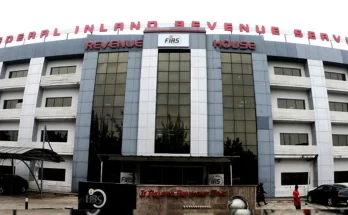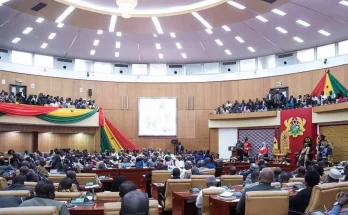- warns of penalties for non-compliance as new tax reforms take effect
The Federal Inland Revenue Service (FIRS) has issued a stern directive to banks, discount houses, stockbrokers, bond issuers, market makers, and government agencies, mandating strict compliance with withholding tax rules on short-term securities.
The order, signed by FIRS Executive Chairman, Dr. Zacch Adedeji, was circulated on Wednesday to remind financial operators of their statutory obligations under Nigeria’s Companies Income Tax Act (CITA) and the 2024 Withholding Tax Regulations.
Tax Must Be Deducted at Source
The directive makes it clear that all interest earned on short-term securities must be taxed at source on the date of payment.
“Tax shall be deducted from all interest payments on investments in short-term securities on the date of payment at the applicable rate. The deducted tax must be remitted to the relevant authority no later than the 21st day of the following month,” the circular stated.
This means financial institutions and agencies must act as tax agents, ensuring deductions are made upfront before payments are released to investors.
Investors Entitled to Tax Credits
The FIRS clarified that taxpayers from whom withholding tax is deducted will receive a tax credit equivalent to the amount remitted, except in cases where the withholding tax is final.
This safeguard, according to the agency, is designed to ensure transparency, accountability, and fairness in the tax system.
Nigeria Crosses Mid-Year Tax Milestone, Hits Over ₦14 Trillion in Revenue
Interest on Government Bonds Remains Exempt
While tightening compliance on short-term instruments, FIRS confirmed that interest earned on Federal Government bonds remains exempt from withholding tax.
This exemption, the agency explained, aligns with Nigeria’s tax incentive regime aimed at encouraging investments in sovereign debt and strengthening government borrowing capacity.
The directive covers a broad range of financial instruments including:
- Treasury bills
- Corporate bonds
- Promissory notes
- Bills of exchange
- Other financial papers commonly used for liquidity management
Penalties Await Defaulters
Dr. Adedeji stressed that non-compliance will attract penalties and interest charges as stipulated by Nigerian tax law.
The directive, he said, is part of broader reforms to widen Nigeria’s tax base, strengthen fiscal discipline, and reduce revenue leakages in financial markets.
Linked to Nigeria’s New Tax Reform Era
This move comes barely a week after Nigeria’s four new tax laws were published in the government gazette on June 26, 2025.
The reforms include:
- Nigeria Tax Act (NTA), 2025
- Nigeria Tax Administration Act (NTAA), 2025
- Nigeria Revenue Service (Establishment) Act (NRSEA), 2025
- Joint Revenue Board (Establishment) Act (JRBEA), 2025
Together, these legislations establish a modernised framework for tax administration, consolidating existing rules, harmonising procedures across federal and state levels, and empowering FIRS under the soon-to-be Nigeria Revenue Service (NRS).
Strengthening Fiscal Framework
Tax analysts say this renewed enforcement of withholding tax compliance is a signal of the government’s seriousness about maximising non-oil revenue in line with its fiscal strategy.
The enforcement is also expected to boost tax-to-GDP performance, currently hovering around 13%, and contribute to the government’s target of 18% by 2030.
By focusing on short-term securities—a high-volume market for institutional investors—FIRS is moving to close compliance gaps that have historically undermined collections.
With the new tax reforms now law, Nigeria is entering a stricter era of compliance-driven revenue mobilisation. For banks, brokers, and agencies, failure to enforce withholding tax on short-term securities could prove costly. For investors, the message is clear—tax obligations will be enforced at source, with credits provided to ensure fairness.




